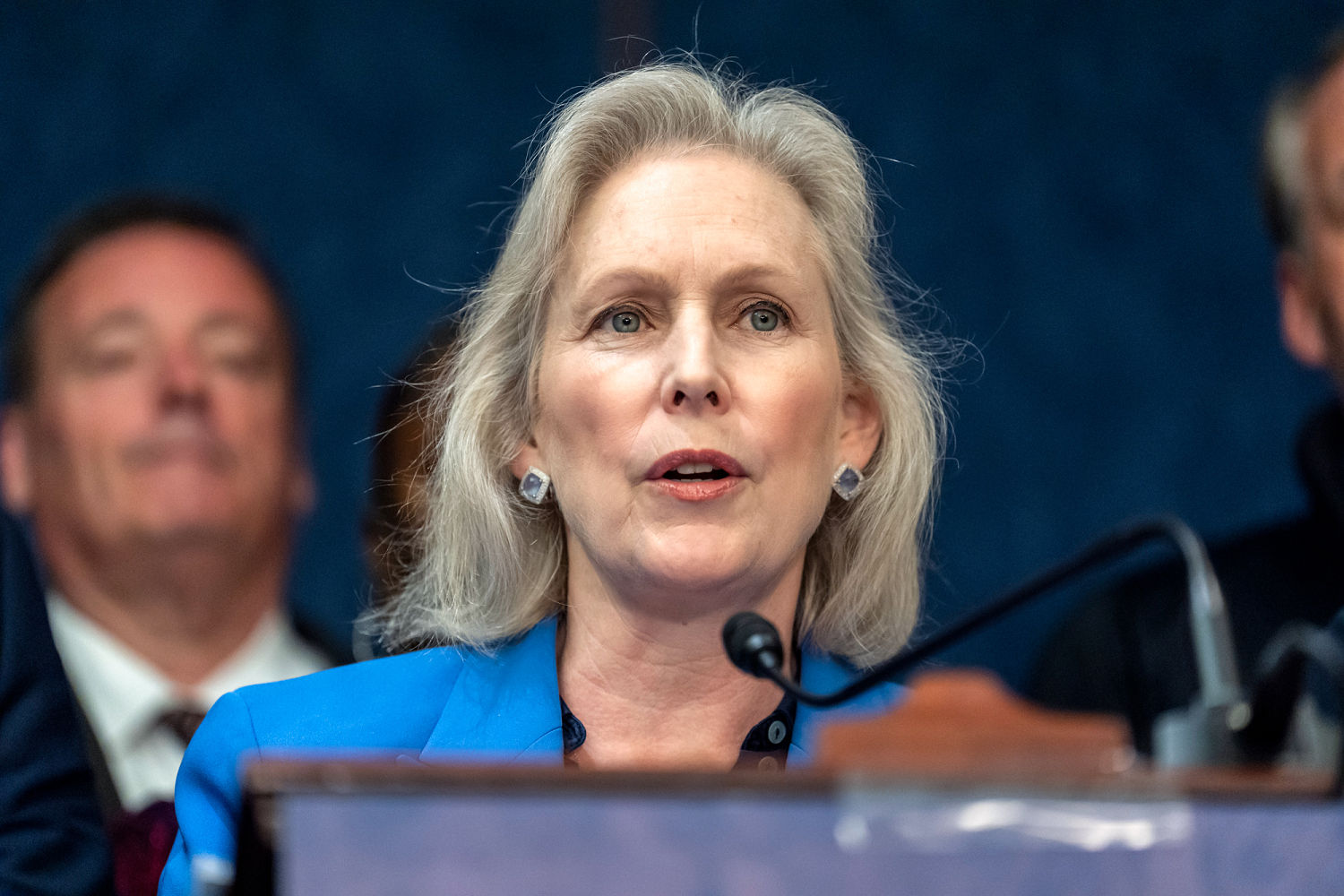
Democrats will have to win some red states if they have any hope of taking control of the Senate next year, and the senator tasked with leading that effort believes President Donald Trump has given them an opening after he won those states easily months ago.
“I look at the map, and every state’s on the table because of this growing backlash that President Trump’s decisions have created, with his cuts to Medicaid and his unwillingness to address affordability issues,” Sen. Kirsten Gillibrand, D-N.Y., told NBC News in an interview at the Democratic Senatorial Campaign Committee headquarters on Wednesday.
Gillibrand also said she isn’t ruling out taking sides in Democratic primaries as her party looks to net four Senate seats to take control of the chamber, saying that she is “definitely not ruling out anything in any state.”
“We’re going to look at every state on a case-by-case basis and make our assessment as to who’s the best candidate in that state, and then make decisions based on that,” Gillibrand said.
Democrats’ ripest targets in 2026 are GOP Sens. Susan Collins of Maine, which Trump lost by nearly 7 percentage points in November, and Thom Tillis of North Carolina, which Trump won by 3 points. Both incumbents are battle-tested, winning contested races in their last cycles on the ballot.
Former Democratic Rep. Wiley Nickel has already launched a run in North Carolina, while former House staffer Jordan Wood is running in Maine. But Democrats are still eyeing Maine Gov. Janet Mills and former North Carolina Gov. Roy Cooper as possible recruits.
While Cooper is weighing a run, Mills has not exactly sounded enthusiastic about challenging Collins, telling the Maine Trust for Local News in April, “I’m not planning to run for anything. Things change week to week, month to month, but at this moment I’m not planning to run for another office.”
Asked if it has been difficult to recruit against Collins, who has a record of winning tough races, including victory in 2020 even as Trump lost Maine decisively, Gillibrand said negative reaction to Trump’s policies is “changing the thinking of a lot of potential candidates.”
“So I am certain we will have formidable candidates in North Carolina and Maine because of this growing backlash that President Trump has created,” Gillibrand said.
Even if Democrats win those two states, and hold on to their current seats in other battlegrounds, they would still need to flip two additional Senate seats in states Trump won by double digits last year to get to a majority. That could mean targeting ruby red states like Texas, Iowa, Alaska, South Carolina and others.
Democrats do not currently hold a single Senate seat in the 24 states that Trump carried in all three of his presidential runs, after several red-state losses in 2024. And Trump won each of those states by double digits last year.
Gillibrand said the “magic formula” for Democratic success involves a combination of “deep Republican backlash” to Trump and some of his policies, like slashing social safety net programs and imposing steep tariffs, and “extraordinarily strong candidates who represent their states well,” as well as boosts from the DSCC to help those candidates build up their campaigns.
Contested Democratic primaries are already taking shape in Iowa, where GOP Sen. Joni Ernst is up for re-election, as well as in competitive states where Democrats are defending open seats, including Michigan and Minnesota.
Ernst has also been in the spotlight for responding to a constituent at a town hall who suggested the House Republicans’ proposed Medicaid cuts could cause people to die and saying, “Well, we all are going to die.”
Asked if such comments give Democrats a better shot at defeating Ernst next year, Gillibrand said Ernst’s remarks exemplify Trump’s “very callous approach towards health care, cutting seniors, cutting people with disabilities, children, pregnant women and veterans off of their Medicaid.”
Gillibrand said those cuts are creating “a significant backlash that certainly puts a state like Iowa in play” along with “many other red states around the country.”
Democrats, meanwhile, are going to be focused on “commonsense, kitchen table issues” of affordability and public safety, Gillibrand said.
The New York Democrat argued those were winning messages for successful candidates in her home state last year, where she led a coordinated campaign with Gov. Kathy Hochul and House Minority Leader Hakeem Jeffries to boost Democratic House candidates.
Democrats flipped three GOP-held House seats in New York even as Trump made gains throughout the state. Trump ultimately lost New York but improved on his 2020 election margin by 11 points, which was the biggest swing toward Trump of any state in the country.
Republicans are looking to capitalize on Trump’s gains as they target Hochul in her re-election run next year, as well as other House Democrats. (Gillibrand said she is supporting Hochul for re-election as she faces a primary challenge from Lt. Gov. Antonio Delgado.)
Republicans are also looking to reprise attacks on Democrats over whether transgender women should be allowed to compete in female sports.
One Nation, a nonprofit tied to the GOP super PAC Senate Leadership Fund, already launched an attack on the issue against Democratic Sen. Jon Ossoff in Georgia. Ossoff represents one of two states, along with Michigan, that Democrats are defending that Trump also carried last year.
“Each candidate will address it as they see fit,” Gillibrand said when asked how Democrats should respond to those attacks.
Gillibrand said she is “very optimistic that Sen. Ossoff will not only win his race, but show rest of the country, you know, who he is and what Democrats stand for.”








